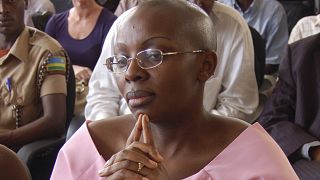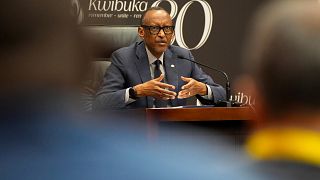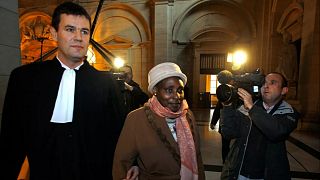Focus Africa
African tech start ups raised nearly $600 million as of 2017 (Quartz Africa), but this is not enough to impact humanity – what the just concluded Next Einstein Forum 2018 aims to achieve.
Developers, entrepreneurs, policy makers and even end users gathered in Kigali, Rwanda, to exchange ideas that could make “Connecting Science to Humanity” a reality.
It is under this theme that a number of the greatest scientific minds on the continent, revealed some of Africa’s technological breakthroughs in this edition of the global forum for science.
‘‘We want to create a conducive environment for young African scientists to really flourish and fulfill their research”, Thierry Zomahoun, Founder and Chairman of the Next Einstein Forum explains.
“We want to engage in a dynamic environment which makes it possible for young African scientists to show what they are capable of and display their genius’’
Rwanda has set the example for gender equality, but it’s president, Paul Kagame, wants this extended to the field of science and technology. He said women should be given equal opportunity to excel.
‘‘The gender gap in science is a global phenomenon but that is no reason to accept it as inevitable. Whatever the causes maybe, we have to dedicate ourselves to closing the gap, because opportunity will never be equal without equal access to knowledge’‘, said Paul Kagame, Rwandan president.
Seema Kumar is the vice president in charge of global health and policy communication at Johnson and Johnson. Much as women must be given the platform, she says must keep up their supportive role. ‘‘Science and technology holds unlimited possibilities for the future, so if you think about 20 years from now, we are going to live in a world filled with all sorts of opportunities in science and technology. What we need is actually males to also continue championing and being ambassadors for women in science’‘.
Then came an opportunity to exhibit samples of work.
Fellows of the Next Einstein Forum showcased their groundbreaking innovations. From traffic solutions, health interventions to sequence DNA. One professor’s idea is to offer the poor an alternative to electricity .
‘‘Part of my work is to create new materials that can enable us to have high-density rechargeable batteries’‘, Professor Peter Ngene, NEF Fellow and Assistant Professor at Utrecht University.
Young African innovators pitched ideas on climate smart innovations and the winners walked away with $25,000 to support their projects.
Malawi’s Rachel Sibande’s “Light from Maize” won for her idea of using maize cobs to generate electricity.
In the personalized health category, Dr. Conrad Tankou’s invention of a digital microscope that connects a smartphone to scan for cervical and breast cancer remotely was awarded. Data is uploaded onto cloud, for doctors kilometers away to conduct analysis.
Professor Abdoulaye Banire Diallo’s precision genome analysis project won in the deep-tech category.
The forum’s next group of fellows were unveiled and participants had the opportunity to see their research and practical application of their projects.
NEF is confident, the next Einstein will come from Africa.
Its fellowship programme recognizes Africa’s best young scientists and technologists, giving them access to its vast network for support, connections, and counsel to advance their work.
The biennial event answered the question of driving innovation through Africa’s digital economy and accelerating relevant solutions to profitable levels.
Senegalese President, Macky Sall was confident, the Next Einstein Forum will help the continent move the discipline forward.
‘‘We have committed to increase investments in science technology to reach 0.7 % of GDP by 2020 and 1 % by 2025’‘.
A majority of great ideas developed by young people on the continent only make it to the prototype stage.
Despite the digital revolution, African researchers still suffer from a lack of global exposure. To change this trend, NEF launched an open access journal to promote research by Africans.
The three-day forum called for a regulatory framework required to foster knowledge-based science policies for a scientific and creative culture to take root on the continent.
Distinguished scientists received honors for their contributions to science and technology on the African continent.
Kenya will host the next global gathering of scientists in 2020.













11:17
Bridging the legal gap in Africa’s digital boom {Business Africa}
02:02
Could AI help fight mosquito-borne diseases?
02:07
Morocco explores its digital future at the 2025 Morocco Gaming Expo
02:20
Ancient DNA reveals genetic link between early Egypt and Mesopotamia
01:52
In Goma, solar power brings light and hope in Ndosho neighbourhood
02:13
Congo and Rwanda sign a US-mediated peace deal aimed at ending decades of bloody conflict